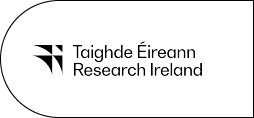
Mark Roantree and the team at DCU are working on a project in the field of evapotranspiration (ET). ET is the process by which water is exchanged between the biosphere and the atmosphere. Better understanding of ET processes and their drivers across diverse environments is important for the entire terrestrial hydrological cycle that governs the transport and recycling of the water that supports, amongst many important factors, our fresh water supplies.
Observations of the Earth’s atmosphere and biosphere over recent decades have indicated an intensifying hydrological cycle and the number of people living in water stressed areas has greatly increased over this period. There is evidence indicating a decline in global terrestrial ET caused by a reduction in available moisture supply. More recently, there are signs of an increase in global terrestrial ET due to increasing land temperature.
.
A deeper understanding of the drivers of evapotranspiration and the modelling of its constituent parts; evaporation E and transpiration T; could be of significant importance to the monitoring and management of water resources globally over the coming decades. The task of accurately predicting E and T from ET is a hard problem. Collaborators at Insight DCU and the School of Biology and Environmental Science at UCD have developed a framework to identify the best performing machine learning algorithm from a candidate set, select optimal predictive features as well as ranking features in terms of their importance to predictive accuracy.
This framework provides climate scientists who may not be familiar with machine learning with a better understanding of how predictive models perform across evapotranspiration sites. It enables them to choose the most accurate predictive model and/or the best feature set to best predict evaporation and transpiration.
Where do we get the Data?
AmeriFlux is a network of PI-managed sites measuring ecosystem CO2, water, and energy fluxes in North, Central and South America. It was established to connect research on field sites representing major climate and ecological biomes, including tundra, grasslands, savanna, crops, and conifer, deciduous, and tropical forests. As a grassroots, investigator-driven network, the AmeriFlux community has tailored instrumentation to suit each unique ecosystem. This “coalition of the willing” is diverse in its interests, use of technologies and collaborative approaches. As a result, the AmeriFlux Network continually pioneers new ground.
This type of data is not freely available in Europe and this is the goal of the European Cost Action underpinning Mark’s work: to make climate data available to European researchers. Other members of this team include Adam Stapleton, a PhD student at ML Labs, an SFI Centre for Research Training in Machine Learning and Elke Eichelmann, a co-supervisor from UCD.

